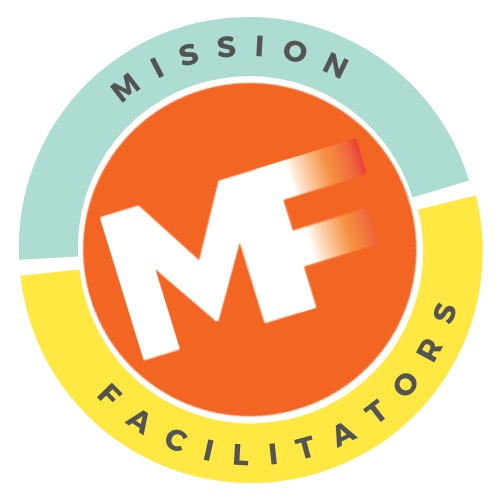Imagine you’re a mountain climber. Your goal is to scale the world’s top three peaks. Each will require great effort and sacrifice. However, you determine you only have enough energy to climb one. So you choose the most popular mountain. You make it to the top and experience the thrill of success. However, a deep regret sets in when you see the other two mountains you chose not to climb. The Peak you scaled is called “Profit.” The other two: “People” and “Planet.”
Later, a wise Sherpa shares a captivating story. He tells of being able to climb all three peaks in a single ascent. “What? How is that possible”, you ask. “How can one climb three mountains at the same time?” “It’s true”, he says, “and I was able to do it with less energy, in less time and without regret.”
In our previous article, we described how people and organizations are re-defining the meaning of success to include three destinations, like the three mountain peaks, each with their own goals:
People: To find and express individual purpose and thereby drive meaning into the workplace.
Profit: To build a sustainable economic engine that provides a sustainable return on investment.
Planet: To create healthy communities, leave a legacy and enhance our Earth.
The blending of these three: “people, profit, and planet” creates a new definition of success that leads to significance and can be measured by our Triple Bottom Line Scorecardô.
Still you’re confused: Three mountains at once, and done with less effort? The Sherpa starts to unravel the mystery. “Behind the constant cloud cover, you’ll discover the three mountains are the base of a much larger mountain.”
You’d heard rumor of such a peak but few knew it existed. “Ok”, you say, “but how can I climb this larger mountain with less energy?” With a wry smile the Sherpa says, “You climb the mountain with many of the same tools you’ve used before, but in a different way.”
In business, those familiar tools are:
- Know yourself and others
- Create a compelling mission
- Plan and execute
You look at the Sherpa: “Let me get this straight. The three mountain peaks, People, Profit and Planet are really a part of an even larger peak. So what is the name of this colossal mountain?” The Sherpa sits back in his chair. “Significance”.
“Alright… and I get to Significance by using many of the same tools I’ve used before but with a keen eye on the three other peaks?”
“Yes” the Sherpa, says. “But there is a final step in getting to Significance. Like never before, you must integrate and leverage those familiar tools, and be strong enough to undergo deep personal transformation. It’s the interdependence of People, Profit and Planet that enables one to reach Significance.
Know yourself and others
We must identify the beliefs and assumptions that drive our actions and decisions. This process clarifies what makes us successful and what holds us back. When necessary, we’ll replace limiting beliefs with effective new ones. By knowing ourselves, we understand others and the differences and similarities that bring us together or hold us apart. This high level of awareness and empathy encourages effective communication, collaboration and decision-making.
“So, if I truly understand myself and others, remove limiting beliefs and replace them with new ones, and build trusting relationships, I can overcome challenges faster and scale the peak to Significance with less effort?”
“Yes,” smiled the Sherpa.
Compelling Mission and Passionate Purpose
Mission statements can be powerful and inspiring if they
- Are created by both leaders and employees
- Focus on People, Profit and Planet
- Are used as the basis for key decisions.
The key is buy-in: People support that which they help create.
Too often, drafting Missions becomes an exercise in “wordsmithing.” They address customers, products, services, shareholders, profits, and “being the best.” Rarely do inspire the company’s “most valuable assets”— its people!
Compelling Mission Statements are about things bigger than our companies —like People, Profit and Planet – and connects everyone to a deep sense of meaning. The Mission of Joie de Vivre Properties, a chain of 40 hotels, reads: “Creating opportunities to celebrate the joy of life.” Do you think Joie employees find their work meaningful, no matter what role they play?
“I understand this part. By focusing on the three peaks of People, Profit and Planet, and collaborating with teammates along the journey, we tap into what’s deeply meaningful to all involved. We reach Significance together.” “Very good,” gleams the Sherpa.
Plan and Execute
Turning a great plan into reality requires a disciplined approach to measuring actions and results, developing servant leaders and tapping into intrinsic motivators. Leaders must balance short and long-term goals, make planning a priority and develop others whose passion is service.
In business, profits have become the ultimate measure of success. Of course it’s critical to have money left over after expenses are paid. These profits fuel what it takes an organization to grow and provide a return on investment.
It’s also vital to have an inspired workforce, because engaged employees are more productive, less costly, lead happier lives outside of work and are more apt to support their communities and protect the environment.
Triple Bottom Line Scorecard
Many companies now subscribe to this triple bottom line scorecard where the ultimate goal is to succeed in People, Profits and Planet. Two states in the U.S. are granting B-Corp designations, as distinct from standard S and C Corporations. B (benefit) Corps are dedicated to achieving triple bottom line results. We have developed a Triple Bottom Line Scorecard to measure results produced in People, Profit and the Community and Planet.
The Sherpa then asks the question that changes your life forever. “Are you ready to ascend the peak of Significance?”

